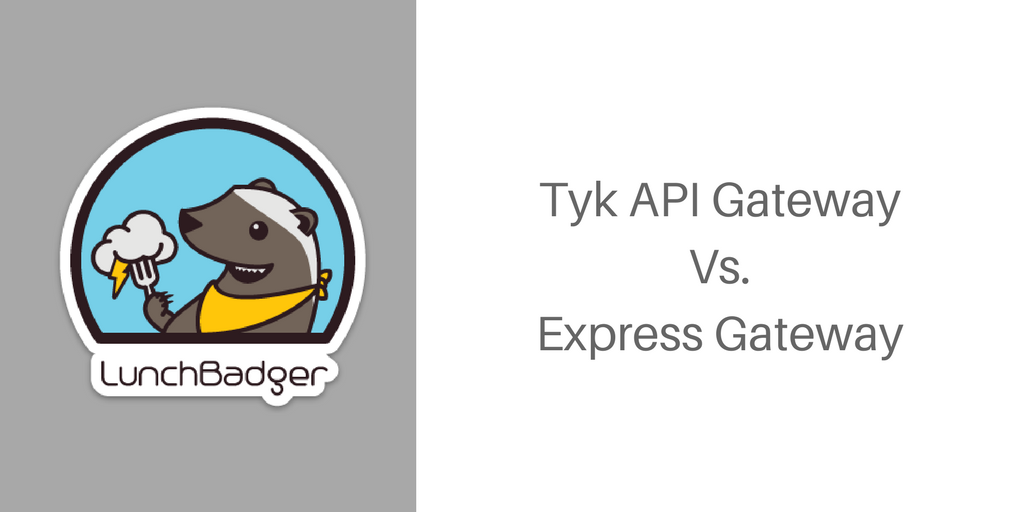API Gateways Comparison – Features and Pricing of Tyk API Gateway vs. Express Gateway
Tyk API Gateway VS. Express Gateway
Open source: beyond the pretty packaging. There are a lot of choices when it comes to choosing and API Gateway. If you’re considering a new API strategy or just kicking the tires, we’ve found that it’s tough find hype-free information that actually helps understand what to look for in an API Gateway and how it fits into even traditional Microservices architecture. So, we rallied the community of developers, executives and thought leaders to get the skinny on the differences (and similarities) of the most popular projects for the API Gateway use case.
In this easy-to-follow format, we’re going to compare Tyk API Gateway and Express Gateway, an open source API Gateway built entirely on Express.js.
Skip ahead to our resources page to download it.
Not ready? Let’s kick things off then with a quick hype-free run down. Buzzword vortex is not our style, so we asked our community of developers and executives what the real deal was all about and here’s a summary based on their real-time use cases, issues and solutions.
Overview
All you need is love! Sometimes, love and just a smart API Gateway. Express Gateway was built by developers for developers after the team heard countless stories of having to “build your own” when it came to an API Gateway. These real world scenarios are what has shaped the open source project. So when it comes to direct solutions for straight forward problems, you’ve got a great option, even in complex API use patterns, there is a vast ecosystem of Express.js middleware and the plugins are all built on JavaScript.
Is it Go time?
While Tyk does a lot more than just an API Gateway, it’s important to keep in mind that it’s built on Go while Express Gateway is built on JavaScript. It’s true, Tyk can be customized to support other languages, but it’s core runtime is Go. It still requires customization. Out of the box, Express Gateway’s runtime is JavaScript (#1 most popular language used by devs surveyed by Stack Overflow in 2017).
Factors to consider when comparing API Gateways
- Elevator Pitches – Ready. Set. TLDR.
- Features and Architecture – How does the stack..well..stack up?
- Getting Started, Deployment and Configuration – How you can get started right away.
- Database Support – What is it and where to find it.
- Administration and Maintenance – Admins to the front!
- Built-in Plugin Support – Easy-to-follow, side-by-side comparison of popular features
- Custom Plugin Support – Everything & the kitchen sink (and probably more)
- Enterprise Versions – Both Tyk and Express Gateway have enterprise versions – what are the key differences?
- + much more…
Why are we talking API Gateways?
In our analysis, we’ll provide additional insight into what an API gateway is and how it works. In addition to comparing the Tyk API Gateway and Express Gateway, an API Gateway built entirely on Express.js, you’ll get a hands-on tutorial on what this could mean for your tech stack, APIs and microservices. It’s more than just APIs – it’s about strategy. Features and plugins pave the way for your ability to be agile in the market, spare developer resources and open up new growth for your company by offering rich customer experiences and integrations.
TLDR: API Gateways are a key asset to any API strategy.
Now it’s time to take a look at what a little open source can do for your business.
Get The Deep Dive
Moving On
If you’ve got questions about this comparison or analysis, let us know. If you’re interested in how to migrate from Tyk or even just to give Express Gateway a try,hit us up. We’re always on the hunt for use cases and understanding more about what companies are using, issues they’re facing or successes they’ve felt.
Additionally, if you’re interested in more of these topics, join the live discussion on twitter (@lunchbadger) or (@express_gateway).
